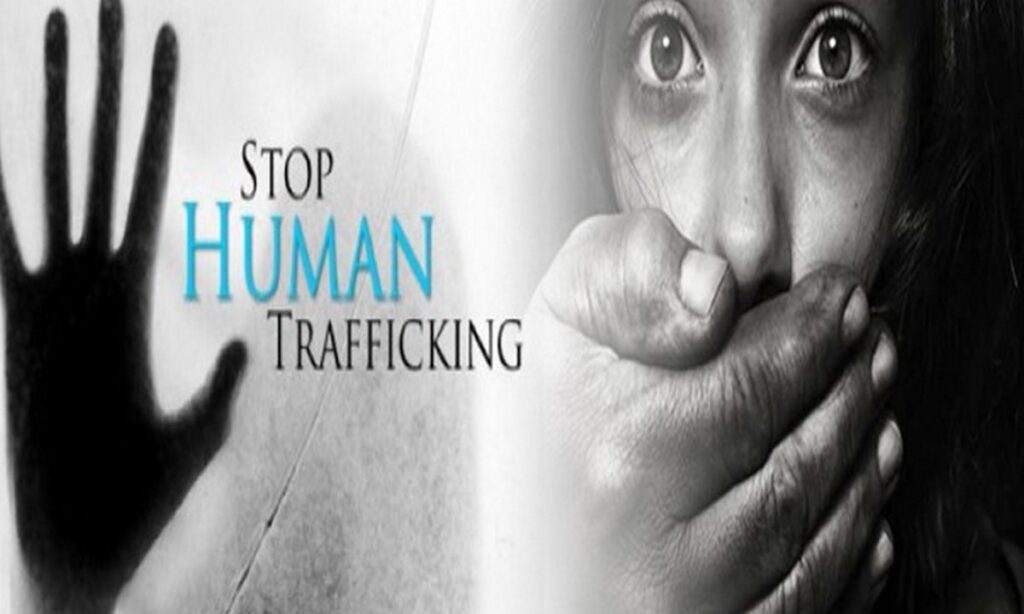Pallabi Ghosh, hailing from Lumding, a railway town in Assam, stands as a formidable figure in the battle against human trafficking and societal injustices in India. Over the past decade, she has rescued over 10,000 girls from traffickers and has become a symbol of hope and resilience for countless individuals trapped in the dark world of trafficking.
Early Life and Motivation
Pallabi’s journey began at the tender age of 12 during a visit to a village in West Bengal. There, she encountered a heart-wrenching scene—a father desperately searching for his missing daughter. This incident left a profound impact on young Pallabi, igniting a fierce determination within her to fight against human trafficking.
Education and Activism
In 2012, Pallabi moved to Delhi for her undergraduate studies and joined the National Service Scheme (NSS) cell of Delhi University. She later completed her master’s degree in Gender Studies in Chennai. This academic background provided her with a deeper understanding of the social issues related to gender and trafficking.
The Grim Reality of Trafficking

According to Pallabi, every day, approximately 2,000 children are trafficked in India. The National Crime Records Bureau reported that 77,535 children were reported missing in 2021, highlighting the severity of the problem. Pallabi’s research revealed that many women and children disappear from states like West Bengal, Odisha, Assam, Jharkhand, Chhattisgarh, Andhra Pradesh, Tripura, and Bihar, only to be found in distant states like Haryana and Rajasthan, often married to men much older than themselves due to skewed sex ratios.
Rescues and Rehabilitation
Pallabi’s work extends beyond mere rescue operations. She emphasizes the importance of rehabilitation and empowerment for survivors. Through her organization, the Impact and Dialogue Foundation (IDF), founded in 2020, she focuses on providing comprehensive support to trafficking survivors. This includes counseling, skill development, and creating livelihood opportunities to help them reintegrate into society.
One of the most harrowing rescues Pallabi recounts is that of a 4-month-old baby, saved from being sold to the Middle East by the child’s own mother. Such stories underscore the desperate conditions that drive trafficking and the urgent need for intervention.
Holistic Approach and Advocacy
Pallabi’s approach involves mapping trafficking-affected areas, identifying root causes, and conducting awareness campaigns in rural regions. She collaborates with social welfare departments and village council leaders to raise awareness about trafficking, gender-based violence, and the negative impacts of social media. Pallabi also works tirelessly to destigmatize survivors, advocating for sensitive journalism that respects the dignity of rescued individuals.
Recognition and Impact
Pallabi’s tireless efforts have earned her significant recognition. In 2013, she was named a “Young Emerging Leader” by Hindustan Times, and in 2016, she was honored as an “Inspiring Individual.” Her work continues to inspire many and serves as a testament to the power of compassion and determination in the fight against human trafficking.
Conclusion
Pallabi Ghosh’s unwavering dedication to rescuing and rehabilitating victims of human trafficking has made her a beacon of hope in India. Her work not only addresses the immediate needs of survivors but also tackles the root causes of trafficking, aiming for sustainable change. In a society where trafficking continues to be a pervasive issue, individuals like Pallabi serve as an inspiration and a force for positive transformation.
Pallabi Ghosh’s story is a reminder that one person’s determination can bring about significant change, providing hope and a path to recovery for thousands of vulnerable individuals.
FAQ’s
Q. Who is Pallabi Ghosh?
A: Pallabi Ghosh is a human rights activist from Lumding, Assam, known for her extensive work in rescuing and rehabilitating victims of human trafficking in India. She has rescued over 10,000 girls over the past decade.
Q. What inspired Pallabi Ghosh to fight against human trafficking?
A: Pallabi’s inspiration began at the age of 12 when she witnessed a father searching for his missing daughter in a village in West Bengal. This event deeply moved her and sparked her lifelong commitment to fighting human trafficking.
Q. What is Pallabi Ghosh’s educational background?
A: Pallabi moved to Delhi in 2012 for her undergraduate studies and joined the National Service Scheme (NSS) cell of Delhi University. She later completed her master’s degree in Gender Studies in Chennai, which enhanced her understanding of social issues related to gender and trafficking.
Q. What recognition has Pallabi Ghosh received for her work?
A: Pallabi Ghosh has received significant recognition, including being named a “Young Emerging Leader” by Hindustan Times in 2013 and honored as an “Inspiring Individual” in 2016.



![kihikila.in[Pallabi Ghosh]_11zon](https://www.kihikila.in/wp-content/uploads/2024/07/kihikila.inPallabi-Ghosh_11zon.jpg)
